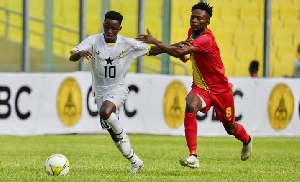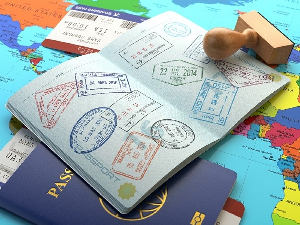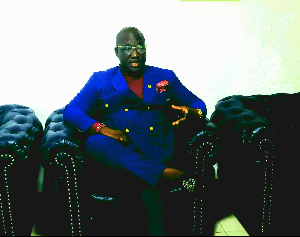- Home - News
- TWI News | TV
- Polls
- Year In Review
- News Archive
- Crime & Punishment
- Politics
- Regional
- Editorial
- Health
- Ghanaians Abroad
- Tabloid
- Africa
- Religion
- Election 2020
- Coronavirus
- News Videos | TV
- Photo Archives
- News Headlines
- Press Release
General News of Friday, 4 October 2002
Source: gna
Allow prisoners to enjoy conjugal rights
Mr. Emile Short, Commissioner for Human Rights and Administrative Justice (CHRAJ), has asked for prisoners to be allowed to enjoy conjugal rights to prevent increasing incidence of sodomy and lesbianism in the prisons.
He said these practices were rampant there because of pent-up feelings prisoners went through because of the denial of such rights. Mr Short was speaking at a round-table discussion organised by the Centre for Democratic Development (CDD) on the theme: "Liberty verses Security; Protecting Human Rights in the Fight Against Crime."
The meeting discussed and sought solutions to problems facing law enforcement agencies, who at times jeopardised the rights and liberties of innocent persons of innocent. Mr Short said: "our routine visits to the prisons have revealed that most prisoners do not get into these vicious activities willingly. They are usually forced by their colleagues who are under pressure and sometime violently so."
He, therefore, requested authorities to create private visiting rooms, where prisoners could meet their wives or husbands to enable them to engage in matrimonial activities, thereby reducing their pent-up feelings.
Mr. Short said: "The 1992 constitution of Ghana guarantees prisoners these rights despite their conviction and sentence to imprisonment." He said they should be involved in productive activities so that they could come out of jail as reformed and economically viable persons.
Mr. Short said it was widely perceived that the gravity of crime determined whether the due process of law should be up held in dealing with suspects or not and the enormity of an offence only became relevant when one was convicted and charged.
Mr. Short advised security agents to investigate case before affecting arrest. The meeting expressed regret that Article 14 section one of the 1992 Constitution denied prisoners civil liberties but guaranteed them basic rights and called on the Parliament to amend the legal document to reverse the trend.
Dr. Kwesi Prempeh, Director of Legal Policy and Governance at the CDD, reminded Ghanaians that Article 42 of the 1992 Constitution gave every citizen the right to vote and to contest for elections, stressing that it did not exclude prisoners.
He said: "No part of our law denies prisoners their voting rights and yet in practice prisoners are not allowed to vote in this country." Dr. Prempeh noted that recent efforts at crime prevention had resulted in human rights violation, which raised serious concerns about the country's democratic development.
He said: " Suspected criminals live among good people and the security agencies should not violate the rights of these people in attempts to arrest the criminals." He urged the police authorities to improve crime prevention measures to avoid repressive methods in so called "war against crime."
"Once the State begins to introduce the imagery of war in the fight against crime, it sends out a clear message that the enemy out there must be flushed out at all cost, even if it meant trampling on the rights and liberties of other citizens in the process," he said.
Dr. Prempeh called for the rehabilitation of the police service in terms of infrastructure, personnel and training to enable them to work efficiently. He said CDD was in the process of organising training courses for the police to update their knowledge and skills to enable them to ensure human rights.
Dr. Prempeh appealed to town planners to designate sites for police stations in their plans, adding that very few, poorly resourced police stations served very large communities.
Dr. Kofi Quashigah, a Senior Lecturer, at the Law Faculty, University of Ghana, Legon, said indiscriminate torture and use of handcuffs in the arrest of suspects was a violation of their rights and must be checked.










